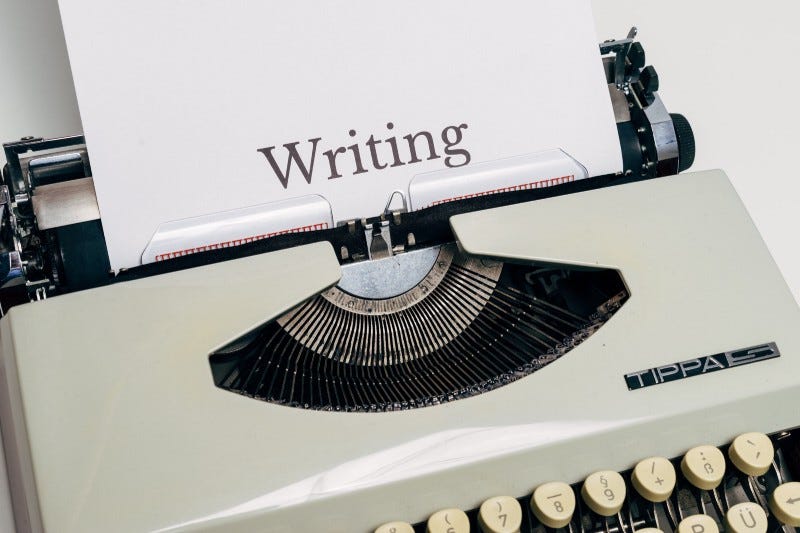What is the Difference?
For most of the past two centuries, with very few exceptions, writers who wanted to have their books published had to rely on being accepted by traditional publishers who took over all of the components of editing, designing, publishing, and marketing a book. Only a very few writers were picked up by established publishing houses, and even then only after several submissions and rejections.
It wasn’t until the advent of print-on-demand (POD) services such as CreateSpace started by Amazon in 2000 (now known as KDP Amazon), as well as other service providers such as IngramSpark, Lulu, and Bookbaby, that writers could easily and quickly publish and distribute their own books without having to depend on traditional publishers.
“Self-publishing” does not necessarily mean “all by yourself,”, however. Most writers get assistance with their publishing tasks from editors and book cover designers to help with producing the finished product.
Unfortunately, in the early 2000s, because publishing their own books was so easy and relatively inexpensive, many writers took shortcuts and published poorly written and designed books, just to get their books “out there.”
Those early attempts with less than stellar book products gave “self-publishing” a bad name, and many authors started moving away from the “Self-published” label and started calling themselves “indie (short for independent) authors” instead.
What is an Indie Author?
Today, an indie author is a writer who still maintains complete control over their book, and has published at least one book without a traditional publisher. There are several self-publishing platforms available for those authors who wish to publish their own books and handle all of the various tasks involved with production themselves.
However, an indie author often hires and pays other experts, editors, graphic designers, etc., up front to help them ready their manuscript for publication, and then publishes their book through one of the larger distribution outlets such as Amazon.
Unfortunately, many indie authors do not take the time to properly market their book and/or tries to pay the least amount possible for professional assistance. Their final profit and royalties are often less than expected because getting their book to market is just the beginning of being a successful author.
An indie author often does not know how to or does not want to, do all of the work to make a viable and profitable business out of their book. They’ve been published, and that is good enough for them.
This is where the important decision must be made about the different publishing company options that can make or break an author’s publishing experience.
The Danger of Vanity Press Scams
As more writers began to self-publish and started looking for ways to easily publish their books, an entire industry popped up, the vanity press. Although it does cost money upfront to hire professionals such as editors and graphic designers to help complete a book, many authors were caught up in the scam of the vanity press, which seemed to offer a writer premium services for a premium price, all while promising the writer will immediately sell thousands of copies of their books. Vanity presses not only charged outrageous fees, they often required the author to also pay them a large part of their royalties.
However, most vanity presses outsourced the services to low-cost and inexperienced 3d-party contractors and did almost no marketing on behalf of the writer. Vanity presses depend on the inexperience and anxiety of new authors and inundate them with unending sales pitches and upsells, all while locking the author into a contract that gives the vanity press all of the advantages and charging the author tens of thousands of dollars.
Many vanity presses promise that they will pay the author huge royalties and that the author’s book will appear in bookstores and that the author will sell thousands of books only if the author uses their company to publish. Unfortunately, vanity presses demand that authors turn over all of their book rights and creative control to the company by making ambitious promises that the company can never fulfill.
Most authors are not knowledgeable enough about the publishing process to get their book to market by themselves, but there are viable and reputable independent publishing companies that help authors successfully market and publish their books without the scamming processes of vanity presses.
Further in this story, I will detail what to look for in an independent publishing house that is not a vanity press.
What is an Indie Publisher?
An indie publisher is an indie author who not only keeps creative control over their book but also learns how to make their book(s) part of a business strategy for success and achieving their publishing goals. Indie publishers know that their book is their brand and strive to publish a quality product. They know that publishing a book without a traditional publisher costs money up front and budget accordingly. Indie publishers often work with a dedicated company like Detroit Ink Publishing, my company founded in 2012, to professionally assist them with necessary preparation and marketing tasks such as:
Professional editing of their manuscript.
Professional graphic design for their book covers.
Professional formatting for the print edition and the eBook edition.
Acquiring their own mandatory ISBN (International Standard Book Number) instead of locking their book into the “free” ISBN from Amazon and others.
Ensuring that their book has been copyrighted with the U.S. government.
Making a business plan with actionable objectives to maximize their profits and royalties.
Setting up and implementing a multi-pronged marketing plan even before the book is published to ensure greater exposure and sales.
About Detroit Ink Publishing
In 2008, right in the middle of the Great Recession, I started my first company, Writing It Right For You (WIRFY), an…medium.com
How to Work with an Independent Publishing Company
Completing your manuscript is only the very first step in publishing your work. One of the best ways to bring your dream creation to fruition is to work with an established independent publishing company.
An independent publishing company like Detroit Ink Publishing (established in 2012) publishes the works of other authors, as well as their own books. A good independent publisher guides authors through the entire process of publishing, including editing, manuscript development, proofreading, publication preparation, and sales and marketing.
Even when you work with a reputable independent publishing company, you are still considered an indie author. The company you choose to work with should have a high-level, highly experienced, professional team of experts on staff for each component of the project process. You should begin with a comprehensive project consultation and subsequently be able to speak directly with the editors and designers, there should be a detailed project plan in place, and you should have a mutually beneficial contract signed. The flat project fees should be reasonable, include a payment plan if necessary, and should be clearly spelled out and are not based on future sales or royalties.
Writing a book is the dream and a goal of many people for just as many reasons. You too can be a published independent author. After completing your manuscript, choosing your publishing team is your next important task.
About Detroit Ink Publishing
If you would like to keep up with everything we’re doing at Detroit Ink Publishing (DIP) (as well as our other group of companies Your Business Your Brand Creatively — YB2C), I invite you to sign up for our (almost) weekly email newsletter. We promise No Spam! You can join the email list here.
My company offers editing, formatting, cover design, copywriting, publishing, and book and author marketing services in packages customized for each client.
If you would like to discuss a potential publishing project, you can schedule a 30-minute consultation at this link. If you decide to hire DIP for your book, the consulting fee will be credited back to you.





